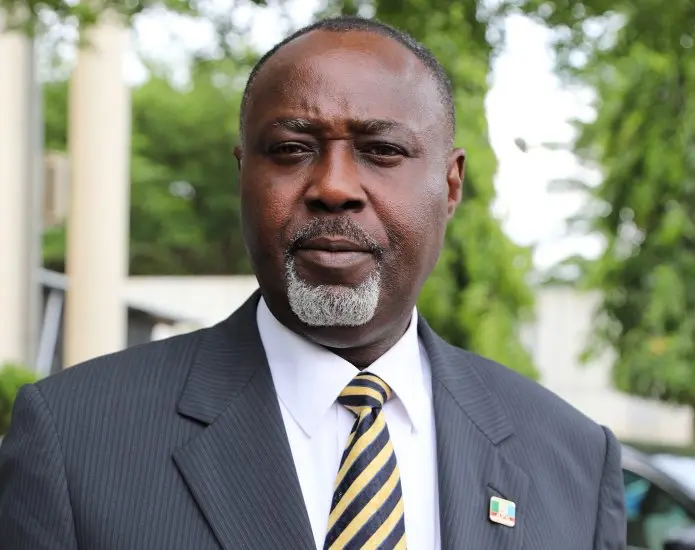Boat mishaps: NIWA must wake up to its responsibilities
In what seems to be a recurring decimal in the nation’s tragedies, the spate of boat accidents has continued unabated with 116 deaths recorded in the last eight months of 2024. According to a compilation by this newspaper, 936 deaths were recorded between 2022 and 2024. A total of 313 fatalities were recorded in 2022 […]

In what seems to be a recurring decimal in the nation’s tragedies, the spate of boat accidents has continued unabated with 116 deaths recorded in the last eight months of 2024.
According to a compilation by this newspaper, 936 deaths were recorded between 2022 and 2024. A total of 313 fatalities were recorded in 2022 and 507 occurred in 2023. Hundreds have also been declared missing and the nation is yet to hear their fate. So far, this year, a total of 17 incidents have been recorded in various parts of the country.
It is unfortunate that every year, the nation loses its citizens to boat mishaps largely due to the negligence in the sector by the relevant authorities.
In one such unfortunate incident, which happened on June 12, 2023, no fewer than 107 people died in a boat accident in Kwara State. According to the then managing director of the National Inland Waterway Authority (NIWA), George Moghalu, the accident occurred due to overloading as the boat, which he described as old and weak, was carrying 250 people.
- Duty-free solar panels classification in line with global standards – Customs
- Israel kills 248 Palestinians in ‘safe zones’ as rights groups condemn siege
Similar stories were often told to explain every boat mishap since then and even to the latest ones.
The inland waterway transport sector has been bedevilled with so many problems which have so far largely been left to linger, causing more loss of lives and agony across the nation.
It is high time all relevant authorities, at the state and federal levels, came together to put a stop to this unnecessary loss of lives of our vulnerable citizens.
Daily Trust believes that the first step is for the governments to recognise the importance water transportation plays in the lives of millions of Nigerians.
According to NIWA, the regulatory agency of the waterways, Nigeria’s resource base of waterways spans 10,000 kilometres with about 3,800 kilometres of it navigable seasonally. This is no mean resource, which if properly utilised will widen the horizon of the means of transportation for the country.
Many of these routes also lead to neighbouring countries such as Benin Republic, Equatorial Guinea, Sao Tome and Cameroon. Thus they can also be used to move goods across the country and beyond thereby saving our roads from frequent and costly wear and tear.
Unfortunately, that is not the case. The nation’s water transport sector is bedevilled with a myriad of problems ranging from outdated infrastructure to lack of regulation. As shown in most of the accidents recorded, the boats used are locally manufactured and old while there is absolute disregard for safety such as the use of life jackets by passengers. More often, passengers are crammed into boats that have passed their time and journeys are undertaken without due regard to weather conditions or other safety issues.
Often, after such incidents, NIWA would only be left to paying condolence visits and reiterating laid-down regulations governing operations in the sector without going ahead to ensure enforcement.
We once again, call on NIWA to lead the way in ensuring strict adherence to all operational rules in the water transportation sector and enforcing relevant sanctions on defaulters.
It should also embark on advocacy and enlightenment campaigns across the nation to bring in key state and local government officials to ensure a safer waterway in the country.
It should also design ways to bring in private operators who would put in money to provide modern boats and employ technology to move the sector forward.
The state and local governments could help in enforcing operational rules to ensure safety on their waterways. They should set up bodies that will ensure strict adherence to operational codes on their respective waterways. They can also assist with incentives to enable more people to venture into the business. This would result in the injection of modern technology and enhancing safety.
State and local governments must also see the sector as one through which they can generate more revenue and provide employment to their citizens.
While we welcome the concern shown by our leaders, by sending condolence messages and promising investigations, we wish to note that not much is heard after such statements.
Daily Trust believes that unless the big stick is wielded on officials who, all these years have refused to discharge their duties of regulating the sector, they will continue to cause such misfortune on the nation.
We, therefore, call on President Tinubu to clearly ask officials of NIWA to live up to their responsibilities of leading the nation to sanitise the sector and ensure safety for our teeming populace. In the alternative, he should scrap the agency. If other agencies like NAFDAC, FRSC and SON could regulate their respective sectors, NIWA should not be allowed to continue to aid the loss of hundreds of lives of our citizens every year.
